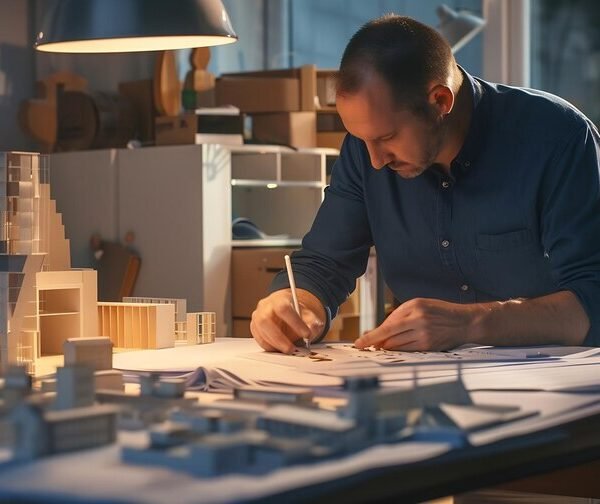What to Consider When Choosing a Home Improvement Contractor
Choosing the right home improvement contractor is crucial for ensuring your renovation dreams don’t turn into a nightmare. From verifying licenses and insurance to assessing qualifications and costs, this comprehensive guide will walk you through the key factors to consider when selecting a contractor for your home remodeling project.
Key Takeaways
- Thoroughly research and vet potential contractors to avoid costly mistakes.
- Understand the importance of proper licensing, insurance, and warranties.
- Learn how to assess contractor qualifications, experience, and specializations.
- Gain insights into cost considerations, project scope, and budgeting.
- Discover the legal and financial implications of hiring an insured contractor.
Buckle up, folks! We’re about to dive into the nitty-gritty of choosing the right home improvement contractor, so you can confidently embark on your renovation journey without any hiccups.
Home renovations are exciting endeavors that can breathe new life into your living spaces. However, the process can quickly become overwhelming if you don’t have the right contractor by your side. Whether you’re planning a kitchen remodel, bathroom overhaul, or a whole-house makeover, selecting the right home improvement contractor is a game-changer.
Think of it this way – you wouldn’t entrust a heart surgeon with a brain surgery, would you? Similarly, you can’t afford to hire just any contractor for your home renovation project. It’s a significant investment, both financially and emotionally, and you want to ensure it’s done right the first time.
That’s where this comprehensive guide comes in. We’ll take you through the crucial steps of researching, vetting, and ultimately choosing the perfect contractor for your home improvement needs. From understanding licenses and insurance to assessing qualifications and costs, we’ve got you covered.
So, let’s roll up our sleeves and get to work!
Research and Preparation
Before you even begin your contractor search, it’s essential to lay the groundwork. Think of it as the foundation for your home renovation project – if you get this part right, the rest will fall into place seamlessly.
Gather Recommendations
Word-of-mouth is a powerful tool in the home improvement world. Start by asking your family, friends, and neighbors if they’ve recently had any work done on their homes. Chances are, they’ll be more than happy to share their experiences – both good and bad – with contractors they’ve hired.
Explore Online Platforms
In today’s digital age, online platforms like Yelp, Angie’s List, and the Better Business Bureau can be invaluable resources for finding reputable contractors in your area. These sites often feature reviews, ratings, and even background checks on contractors, giving you a comprehensive picture of their work ethic and reliability.
Verify Credentials and Licenses
Before you even consider hiring a contractor, make sure they’re properly licensed and insured. Different states and municipalities have varying requirements, so it’s essential to research your local regulations. Don’t hesitate to ask potential contractors for proof of their licenses, insurance, and any necessary permits.
Ask the Right Questions
Once you’ve narrowed down your list of potential contractors, it’s time to start asking questions. Inquire about their experience, specializations, warranties, and guarantees. Don’t be afraid to delve into their process, timeline, and communication style. After all, you’ll be working closely with them for the duration of your project.
Remember, thorough research and preparation can save you from a world of headaches down the line. It’s better to invest time upfront than to deal with the consequences of a shoddy contractor later.
Contractor Qualifications and Requirements
Now that you’ve done your due diligence in researching potential contractors, it’s time to assess their qualifications and requirements. This step is crucial in ensuring you hire a contractor who not only meets your project needs but also upholds industry standards.
Experience and Portfolio
Experience is the name of the game in the home improvement industry. A seasoned contractor with a solid portfolio of completed projects can offer invaluable expertise and problem-solving skills. Don’t be afraid to ask for references and to see examples of their previous work.
Specialization and Expertise
While some contractors may be jack-of-all-trades, it’s often better to hire specialists for specific types of projects. For instance, if you’re planning a kitchen remodel, consider hiring a contractor who specializes in kitchen renovations. Their expertise can ensure your project is executed flawlessly and adheres to the latest design trends and building codes.
Guarantees and Warranties
A reputable contractor should stand behind their work and offer guarantees or warranties. This not only demonstrates their confidence in the quality of their workmanship but also provides you with a safety net should any issues arise after the project’s completion.
Liability Insurance and Coverage
Accidents can happen, even on the most well-managed job sites. That’s why it’s crucial to ensure your contractor carries adequate liability insurance and workers’ compensation coverage. This protects both you and the contractor in case of property damage, injuries, or accidents during the renovation process.
References and Testimonials
Don’t just take the contractor’s word for it – ask for references and read through testimonials from previous clients. A solid reputation and positive reviews can speak volumes about a contractor’s professionalism, communication skills, and overall quality of work.
By thoroughly evaluating a contractor’s qualifications and requirements, you’ll be better equipped to make an informed decision and hire someone who truly understands the intricacies of your home improvement project.
Cost Considerations
Let’s be real – home renovations can be a significant financial investment. However, that doesn’t mean you should automatically go for the lowest bid. In fact, that could be a recipe for disaster. When it comes to cost considerations, it’s essential to strike a balance between affordability and quality.
Estimating Costs and Budgeting
Before you even begin your contractor search, it’s crucial to have a realistic idea of how much your project will cost. Research material prices, labor rates, and any additional expenses that may arise. Don’t be afraid to ask potential contractors for detailed cost estimates and breakdowns.
Labor Costs and Efficiency
While it may be tempting to go for the contractor with the lowest labor rates, remember that you often get what you pay for. Skilled and experienced contractors may charge more upfront, but their efficiency and quality workmanship can save you money in the long run.
Material Costs and Quality
When it comes to materials, it’s important to strike a balance between cost and quality. While opting for the cheapest materials may seem like a money-saver, they may not withstand the test of time or meet your expectations. Work with your contractor to find high-quality, yet reasonably priced, materials that fit your budget and design aesthetic.
Contingency Planning and Budgeting for Unexpected Expenses
No matter how meticulously you plan, unexpected expenses can always crop up during a home renovation project. It’s wise to set aside a contingency fund (typically 10-20% of your overall budget) to cover any unforeseen costs, such as structural issues, permit fees, or material price fluctuations.
Remember, the cheapest option isn’t always the best choice when it comes to home improvement projects. By carefully considering all cost factors, you can ensure you get the best value for your money and avoid any unpleasant financial surprises down the line.
Project Scope and Size
The scope and size of your home renovation project can significantly impact not only the overall cost but also the complexity and duration of the work involved. It’s essential to have a clear understanding of these factors before choosing a contractor.
Impact on Overall Cost
Larger, more complex projects will naturally cost more than smaller, simpler ones. However, the overall cost can also be influenced by factors such as the age of your home, the condition of the existing structures, and any necessary permits or zoning approvals.
Complexity and Intricacy of Work Involved
Intricate projects, such as historic home renovations or custom additions, often require specialized skills and expertise. In these cases, it may be necessary to hire a contractor with specific experience in handling complex projects to ensure the work is done correctly and up to code.
Importance of Accurate Estimation and Planning
Regardless of the project’s scope or size, accurate estimation and planning are crucial. A skilled contractor should be able to provide you with a detailed project timeline, outlining each phase of the renovation process. This not only helps manage expectations but also ensures the project stays on track and within budget.
When discussing the project scope with potential contractors, be as specific as possible about your requirements and desired outcomes. This will help them provide you with accurate cost estimates and timelines, minimizing the risk of misunderstandings or delays down the line.
Remember, even seemingly small projects can quickly escalate in complexity if not properly planned and managed. By choosing a contractor who understands the intricacies of your project’s scope and size, you can ensure a smoother, more efficient renovation process.
Insurance and Liability
While we all hope for a seamless home renovation experience, accidents and mishaps can happen. That’s why it’s crucial to prioritize insurance and liability considerations when choosing a contractor.
Importance of Contractor Insurance
A reputable contractor should carry comprehensive insurance coverage, including general liability and workers’ compensation insurance. This protects both you and the contractor in case of accidents, injuries, or property damage during the renovation process.
Coverage for Property Damage and Accidents
General liability insurance covers any accidental damage to your property, such as walls, floors, or fixtures, caused by the contractor or their crew during the renovation. It can also protect you from liability if someone is injured on your property while the work is being done.
Workers’ Compensation Insurance and State Requirements
In most states, it’s a legal requirement for contractors to carry workers’ compensation insurance for their employees. This coverage ensures that if a worker is injured on your property, their medical expenses and lost wages are covered, protecting you from potential lawsuits.
Legal Implications and Financial Protection
Hiring an uninsured or underinsured contractor can have severe legal and financial implications. If an accident occurs and the contractor lacks proper coverage, you could be held liable for any damages or injuries, potentially leading to costly lawsuits and out-of-pocket expenses.
Don’t be afraid to ask potential contractors for proof of insurance and to verify the coverage limits and expiration dates. It may seem like a tedious step, but it can save you from a world of legal and financial headaches down the line.
Conclusion
Phew, we’ve covered a lot of ground! From researching and vetting potential contractors to understanding cost considerations, project scope, and insurance requirements, choosing the right home improvement contractor is no small feat.
However, by following the guidelines outlined in this comprehensive guide, you’ll be well-equipped to navigate the often-daunting task of hiring a contractor for your home renovation project.
Remember, a successful home improvement project relies heavily on the contractor you choose. Take the time to do your due diligence, ask the right questions, and prioritize qualifications, experience, and insurance coverage. Don’t be swayed by the lowest bid or flashy promises – focus on finding a contractor who truly understands your vision and has the expertise to bring it to life.











